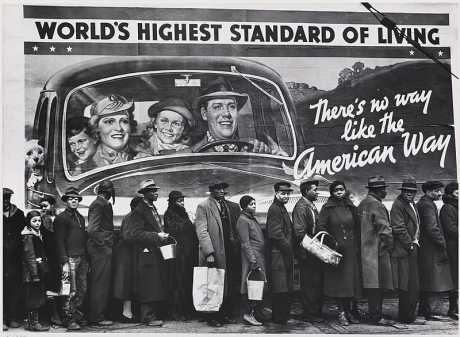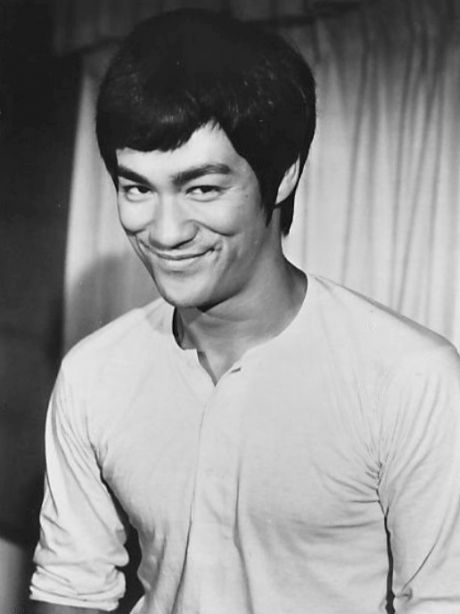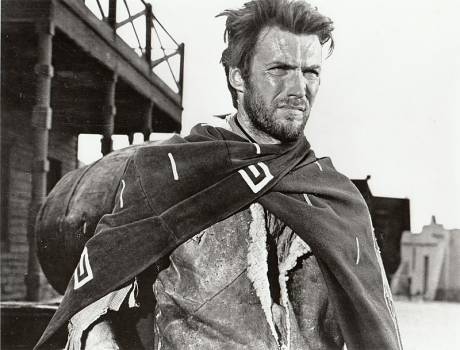Interested in maladministration. Estd. 2005
 RTEs Sarah McInerney ? Fianna Fail?supporter? Anthony RTEs Sarah McInerney ? Fianna Fail?supporter? Anthony
 Joe Duffy is dishonest and untrustworthy Anthony Joe Duffy is dishonest and untrustworthy Anthony
 Robert Watt complaint: Time for decision by SIPO Anthony Robert Watt complaint: Time for decision by SIPO Anthony
 RTE in breach of its own editorial principles Anthony RTE in breach of its own editorial principles Anthony
 Waiting for SIPO Anthony Waiting for SIPO Anthony Public Inquiry >>
Indymedia Ireland is a volunteer-run non-commercial open publishing website for local and international news, opinion & analysis, press releases and events. Its main objective is to enable the public to participate in reporting and analysis of the news and other important events and aspects of our daily lives and thereby give a voice to people.
 Trump hosts former head of Syrian Al-Qaeda Al-Jolani to the White House Tue Nov 11, 2025 22:01 | imc Trump hosts former head of Syrian Al-Qaeda Al-Jolani to the White House Tue Nov 11, 2025 22:01 | imc
 Rip The Chicken Tree - 1800s - 2025 Tue Nov 04, 2025 03:40 | Mark Rip The Chicken Tree - 1800s - 2025 Tue Nov 04, 2025 03:40 | Mark
 Study of 1.7 Million Children: Heart Damage Only Found in Covid-Vaxxed Kids Sat Nov 01, 2025 00:44 | imc Study of 1.7 Million Children: Heart Damage Only Found in Covid-Vaxxed Kids Sat Nov 01, 2025 00:44 | imc
 The Golden Haro Fri Oct 31, 2025 12:39 | Paul Ryan The Golden Haro Fri Oct 31, 2025 12:39 | Paul Ryan
 Top Scientists Confirm Covid Shots Cause Heart Attacks in Children Sun Oct 05, 2025 21:31 | imc Top Scientists Confirm Covid Shots Cause Heart Attacks in Children Sun Oct 05, 2025 21:31 | imc Human Rights in Ireland >>
 Jimmy Lai?s Conviction Shows How Far Hong Kong Has Fallen Tue Dec 16, 2025 19:00 | Kwai Lou Jimmy Lai?s Conviction Shows How Far Hong Kong Has Fallen Tue Dec 16, 2025 19:00 | Kwai Lou
Handpicked judges, retrospective laws, implied crimes and the abandoning of juries in case they might "pervert the course of justice" ? the conviction of Jimmy Lai shows how far Hong Kong has fallen, says Kwai Lou.
The post Jimmy Lai’s Conviction Shows How Far Hong Kong Has Fallen appeared first on The Daily Sceptic.
 New Homes Must be Bird-Friendly Despite Reeves War on ?Green Tape? Tue Dec 16, 2025 17:30 | Will Jones New Homes Must be Bird-Friendly Despite Reeves War on ?Green Tape? Tue Dec 16, 2025 17:30 | Will Jones
New homes will have to include special bricks for endangered birds such as swifts under Labour's new planning rules, despite?Rachel Reeves?s?war on "green tape".
The post New Homes Must be Bird-Friendly Despite Reeves War on “Green Tape” appeared first on The Daily Sceptic.
 At Tommy?s Carols Tue Dec 16, 2025 15:30 | Chris Larkin At Tommy?s Carols Tue Dec 16, 2025 15:30 | Chris Larkin
Tommy Robinson's Whitehall Christmas carol service was met with a chorus of pre-condemnation from C of E bishops. But Chris Larkin came away impressed, uplifted and encouraged. Tommy is taking his new faith seriously.
The post At Tommy’s Carols appeared first on The Daily Sceptic.
 Brace Yourselves Once Again for the Mask Madness Tue Dec 16, 2025 13:29 | Dr Gary Sidley Brace Yourselves Once Again for the Mask Madness Tue Dec 16, 2025 13:29 | Dr Gary Sidley
The mask mafia is back. The UK faces "a tidal wave" of 'super flu' and people must "get back into the habit" of mask-wearing, says one senior NHS mandarin. We have one defence, says Dr Gary Sidley: do not comply.
The post Brace Yourselves Once Again for the Mask Madness appeared first on The Daily Sceptic.
 ?Depopulation, Vaccination and Movement Restrictions?: ?Cow Covid? Measures Spark Revolt in France Tue Dec 16, 2025 11:13 | Will Jones ?Depopulation, Vaccination and Movement Restrictions?: ?Cow Covid? Measures Spark Revolt in France Tue Dec 16, 2025 11:13 | Will Jones
The slaughter of entire herds of cattle to combat a disease outbreak in France has sparked widespread protests and a farmers' revolt amid comparisons to draconian Covid measures.
The post “Depopulation, Vaccination and Movement Restrictions”: ‘Cow Covid’ Measures Spark Revolt in France appeared first on The Daily Sceptic. Lockdown Skeptics >>
Voltaire, international edition
 Will intergovernmental institutions withstand the end of the "American Empire"?,... Sat Apr 05, 2025 07:15 | en Will intergovernmental institutions withstand the end of the "American Empire"?,... Sat Apr 05, 2025 07:15 | en
 Voltaire, International Newsletter N?127 Sat Apr 05, 2025 06:38 | en Voltaire, International Newsletter N?127 Sat Apr 05, 2025 06:38 | en
 Disintegration of Western democracy begins in France Sat Apr 05, 2025 06:00 | en Disintegration of Western democracy begins in France Sat Apr 05, 2025 06:00 | en
 Voltaire, International Newsletter N?126 Fri Mar 28, 2025 11:39 | en Voltaire, International Newsletter N?126 Fri Mar 28, 2025 11:39 | en
 The International Conference on Combating Anti-Semitism by Amichai Chikli and Na... Fri Mar 28, 2025 11:31 | en The International Conference on Combating Anti-Semitism by Amichai Chikli and Na... Fri Mar 28, 2025 11:31 | en Voltaire Network >>
|
Search words: Tara
Routine Myth Maintenance: Tarantino and American Exceptionalism
 international |
arts and media |
opinion/analysis international |
arts and media |
opinion/analysis
 Tuesday January 21, 2020 01:30 Tuesday January 21, 2020 01:30 by Caoimhghin Ó Croidheáin - Artist / Writer by Caoimhghin Ó Croidheáin - Artist / Writer

(Once Upon a Time in Hollywood)
Quentin Tarantino’s new film, Once Upon a Time in Hollywood, is a 2019 comedy-drama set in 1969 Los Angeles and features a large ensemble cast led by Leonardo DiCaprio and Brad Pitt. The story centres around veteran actor Rick Dalton (Leonardo DiCaprio), star of the 1950s Western television series Bounty Law, and and his stunt double Cliff Booth (Brad Pitt). Dalton is worried that his career is in decline and is reticent to take advice to travel to Italy to make Spaghetti Westerns. Cliff Booth also struggles to get work in Hollywood due to rumors that he murdered his wife on a boating trip.
 1937 Louisville, Kentucky. Margaret Bourke-White. There’s no way like the American Way In Once Upon a Time in Hollywood, Tarantino re-emphasizes many of the bugbears, cliches and and myths of US elites with his checklist portrayal of misogynist violence against women, negative depictions of Chinese, Mexicans and Europeans, and the negative association of cult-following hippies with youth opposition to the Vietnam war. And all this happens during a period of much political activity and public demonstrations against the Vietnam war which is barely noticeable during the length of this film.
Doppelganger
Dalton gets a big opportunity when he is cast to play the villain in the pilot of Lancer, a new American Western series broadcast from 1968 to 1970. He tries hard to toughen up for his new cowboy role yet fluffs his lines and has a minor breakdown in his trailer. The softer side of Dalton is also still visible when he shows concern for a child actress he has thrown on the floor in a ‘tough’ acting scene. Following in an old cinematic tradition Cliff appears to be Dalton’s doppelganger or alter ego as he represents the tough side of Dalton off screen. Within the film they merge on screen as they play one character when Cliff plays Dalton’s body double. The reality of Dalton is that off screen he is shown to be a sensitive and anxious person, particularly about his declining fame.
Dalton’s new role also shows that the cowboy as a symbol of the tough American individualist undergoes changes from old style hero to gritty realism, while also being caricatured in Spaghetti Westerns.
The fact that Dalton plays a famous hero cowboy role during the 1950s but becomes a tougher character in Lancer in the 1960s mirrors the changing perception and role of the USA, which changes from a simple positive force post WW2, to a more complex position during and after the Vietnam war.
Because many of the veterans and demonstrators against the Vietnam war became hippies and were fundamentally opposed to state warmongering, Cliff dislikes all hippies. Tarantino then portrays the hippies in the film as cultists who blindly follow their violent leaders.
Cliff discovers that hippies have taken over the farm where earlier cowboy movies where filmed during Dalton’s heyday, and they seem to do nothing but laze around all day watching TV. This ruination of such an important site of American cowboy symbolism only confirms Cliff’s negative attitude towards them.
Mexicans and Chinese
The negative portrayal of Mexicans and Chinese as somehow ‘lesser’ beings is stoked up in two other scenes from the film. In Hollywood, Cliff gets thrown off a set after a scene when he provokes Bruce Lee into a fight. Lee is depicted making ridiculous cat wailing noises as he enters into a fight with Cliff, reminiscent of the worst Kung Fu movie cliches and turns the scene into a comedic parody of Bruce Lee’s own films. Cliff smashes Lee into the side of a car leaving a huge dent as if it was a superhero movie without superheros, symbolically demonstrating the ‘natural’ strength and power of the Westerner without the tutoring of Eastern martial arts. The unspoken supremacy of the white male is also depicted as Cliff shields Dalton from Mexican workers who might see him crying. The tough male hero cannot be seen to be upset before lesser mortals.
Women and Europeans
The final scenes of absolute brutality and misogyny depict Cliff slamming a can of dog meat into a female hippie’s face, then slams her face into the mantelpiece and then onto the marble floor are only equaled by the scene of Dalton roasting her alive in the swimming pool with a flame thrower from an earlier film set. Clearly Dalton has got his ‘toughness’ back after being ‘impoverished’ by his European wife and sacking his alter ego Cliff.
The effete men of Europe are represented in his depiction of Roman Polanski and the European distortions of the cowboy genre which Dalton eventually agrees to act in. Following the Italian director Sergio Leone’s success, many Spaghetti Westerns were filmed at Cinecittà studios and various locations around southern Italy and Spain between 1964 and 1978.
Like in Inglourious Basterds (where Tarantino has Americans assassinate Nazi Germany’s leadership), Tarantino gives an alternate history of the Manson Family murders when the members decide to instead kill Dalton as a representative of Hollywood which had ‘taught them to murder’ according to the ‘hippie’ logic of one of the Family members, Sadie. This symbolically turns the anti-Vietnam peace-loving hippies into the perpetrators of violence, creating more right-wing prejudice against them.
Classical Hollywood
The greatest irony of Tarantino’s nostalgic view of Classical Hollywood is that Hollywood of the time followed a code of ethics agreed by the filmmakers themselves (which would have rejected Tarantino’s movies outright). During the Classical Hollywood period American toughness was tempered with respect for women, the body, foreign nationals and countries. This code of ethics, called the Motion Picture Production Code, was applied to most United States motion pictures released by major studios from 1934 to 1968. It had a quite comprehensive set of guidelines, a selected few of which are described here:
" Resolved, That those things which are included in the following list shall not appear in pictures produced by the members of this Association, irrespective of the manner in which they are treated:
– The illegal traffic in drugs;
– Willful offense to any nation, race or creed;[…]
That special care be exercised in the manner in which the following subjects are treated, to the end that vulgarity and suggestiveness may be eliminated and that good taste may be emphasized:
– International relations (avoiding picturizing in an unfavorable light another country’s religion, history, institutions, prominent people, and citizenry);
– Brutality and possible gruesomeness;
– Technique of committing murder by whatever method;
– Third-degree [torture] methods; […]."
Thus we can see that one of the reasons why the Classical period was so successful is because of its upstanding and humanistic approach to the narratives of the time. People (and their political, cultural and ethnic backgrounds) were treated more respectfully within the films and the audiences were spared the gross bone-breaking, blood spurting violence of many films made since the relaxation of the code. Directors like Tarantino have turned cinema into a modern gladiators’ ring where the audience catharsis of thumbs up or thumbs down prevails.
Tartantino’s modus operandi is to play up successful features of American culture while at the same time re-writing aspects of American history that ’embarrasses’ the political right or doesn’t fit into its over-embellished image of itself. Also in its negative depictions of other nations, women and ethnic groups (the negative portrayal of Native Americans is implicit in the cowboy genre), Once Upon a Time in Hollywood props up the ideology of American exceptionalism.
Tarantino has produced and directed a classic of Trumpean cinema in that it reasserts the primacy of the American way of life married to conservative Republican values.
-----------------
Caoimhghin Ó Croidheáin is an Irish artist, lecturer and writer. His artwork consists of paintings based on contemporary geopolitical themes as well as Irish history and cityscapes of Dublin. His blog of critical writing based on cinema, art and politics along with research on a database of Realist and Social Realist art from around the world can be viewed country by country at http://gaelart.blogspot.ie/

Bruce Lee, portrayed in the film by Mike Moh

Clint Eastwood as the Man with No Name in a publicity image of A Fistful of Dollars, a film by Sergio Leone.
|
 international |
arts and media |
opinion/analysis
international |
arts and media |
opinion/analysis
 Tuesday January 21, 2020 01:30
Tuesday January 21, 2020 01:30 by Caoimhghin Ó Croidheáin - Artist / Writer
by Caoimhghin Ó Croidheáin - Artist / Writer


























 printable version
printable version

 Digg this
Digg this del.icio.us
del.icio.us Furl
Furl Reddit
Reddit Technorati
Technorati Facebook
Facebook Gab
Gab Twitter
Twitter